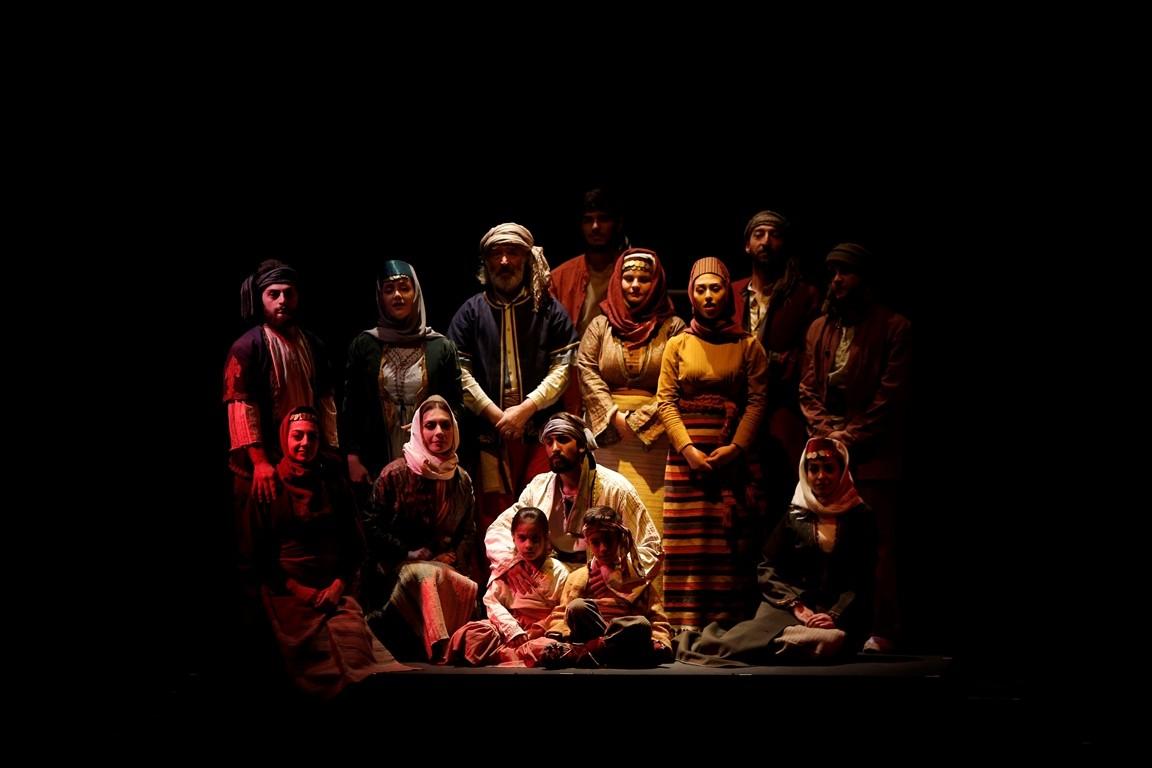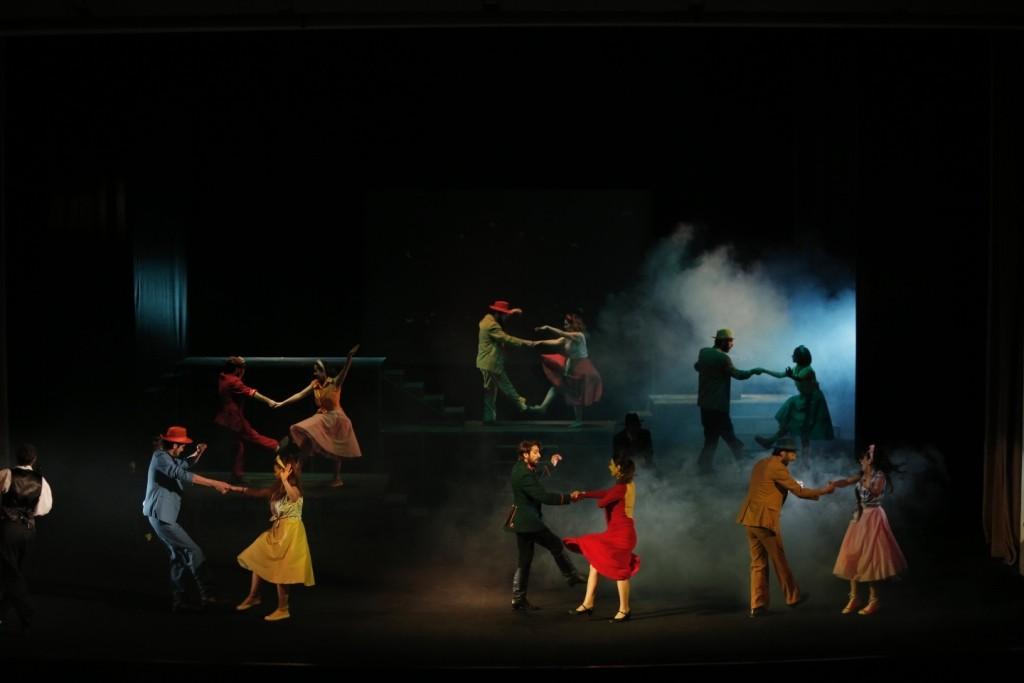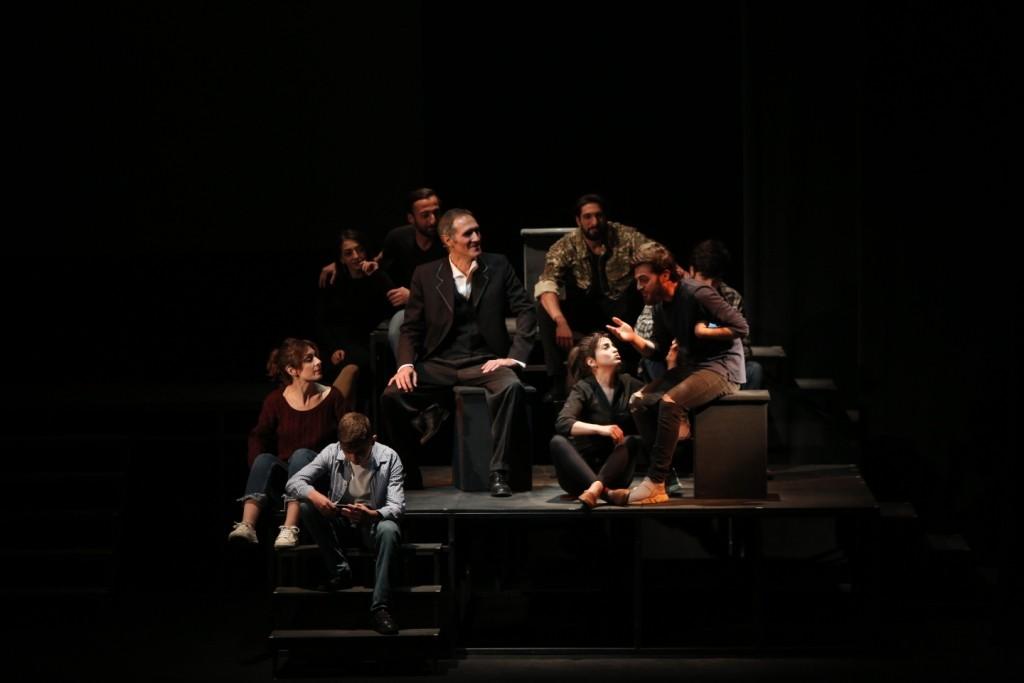
Vardan Petrosyan: "I dream that during the performance someone enters the hall and shouts, It’s over. The war is over”
Theatergoers enter the hall wearing face masks.
They are told to sit two seats apart given the Covid-19 safety regulations regarding indoor cultural events.
There’s none of the normal pre-performance chattering or jostling for seats. There’s the pandemic to think about, and the ongoing war in Artsakh.
The audience sits in silence as the final bell rings, heralding the start of the performance.
The silence is suddenly broken. People run across the stage, fleeing some unseen catastrophe. They cry out for help. Confusion reigns for several seconds.
A figure then runs down the aisle in the theater yelling “Don’t be afraid!” Startled theatergoers break out in applause when they see it’s none other than Vardan Petrosyan running down the aisle towards the stage.
Petrosyan is an actor and screenwriter in Armenia and the diaspora famous for his one-man plays focusing on cultural and social issues withing Armenian society.
He’s now in Armenia with a play he’s written called Ascent.
Staged by Ani Hamel, the play, according to Petrosyan deals with issues of genocide, the sufferings of the Armenian nation as experienced by Komitas Vardapet, and the will of the Armenian people to overcome all challenges placed in its path. It seeks to convey a message of hope and unity against a backdrop of war.
The play was performed at the Gyumri State Drama Theater on October 23 and 24 and at Yerevan’s Hagop Baronian Musical Comedy Theater on October 26 and 27. All ticket proceeds have gone to the Hayastan All Armenian Fund.
Petrosyan stresses that during such dark days, when Armenian soldiers are fighting on the frontline, people at home must stay strong and united. Quoting Marshal Baghramyan, Petrosyan says such positive unity accounts for half the battle and that he felt the need to contribute to the war effort via the arts, to lift the spirits of those far from the frontline, and to argue for a united “rearguard”.
"I had planned to bring another show to Armenia, with which I toured in Los Angeles at the beginning of the year, but the epidemic closed all the borders. At the time, I followed the internal political life of Armenia, the division of the Armenian thought and I realized that I had no right to bring the play New Times, New Manners to Armenia," says Petrosyan, adding that he shelved that work for another time.
Petrosyan says that he’d received an offer from the Gyumri Drama Theater to do a joint play and set to work on Ascent.
"The play begins with the purification of the soul," Petrosyan says.
On stage, a family from Gyumri is going to take part in the April 24, 2020 virtual candlelight vigil. The next act takes the audience back to 1869, the city of Kütahya, where Komitas (Soghomon Soghomonian) was born. The plot of the play simultaneously presents the genocide of Armenians 100 years ago and the indifference of the world, combining all this with today's reality. The story of Komitas' life runs throughout the play.
Emotions ebb and rise and the play continues. The final act concludes with the actors shouting, “we have won”.
Theater Director Ludvig Harutyunyan says their last performance was on March 12. The pandemic forced them to take a six-month “creative break”.
Rehearsals for Ascent began in mid-September. Fighting in Artsakh broke out soon afterwards.
"We stopped work for a while. We didn’t know if we should go ahead with the performance. It wasn’t easy continuing rehearsals. Many family members had been conscripted for the war, there have been deaths. But we realized that we must do our part as well,” says Harutyunyan.
"There is a story that few people know about," says Petrosyan. "In 1922, when the wounds of the devastation caused by the Turks were still fresh, Gyumri was full of refugees and orphans. In that year, Armen Armenian staged David of Sassoun. A group of 150 refugees took part in the performance. Every time I remember this story, I wonder what kind of inner strength it took to perform in a city so starving and sad.”
Talking about the role of the arts in wartime, Petrosyan points to the opening of the Hagop Baronian State Theater of Musical Comedy in Yerevan in 1942, during World War II, when German troops were on the march.
"It means it was necessary. And what was interesting is that it wasn’t the dramatic theater that was opening, but the operetta theater itself," says Vardan Petrosyan, noting that Vahram Papazyan continued to play Othello in Leningrad during the blockade. Artists from the Moscow Opera and Ballet Theater fled to Samara (formerly Kuibyshev) in 1941-43 and continued to perform, regularly donating the proceeds to the Defense Army Fund. There are many examples.”
The project was implemented with the support of Armenia’s Ministry of Education and Science. They play was scheduled to be performed in Stepanakert and Shushi, as well as overseas.
"I dream that during the performance someone enters the hall and shouts, ‘It’s over. The war is over.’” says Vardan Petrosyan. “I'm going on stage now, waiting to hear those words.”
Photos courtesy of the Gyumri State Drama Theater
 Videos
Videos Photos
Photos



Write a comment